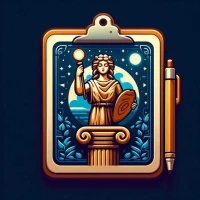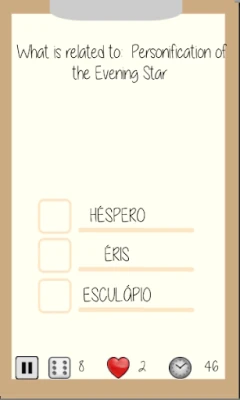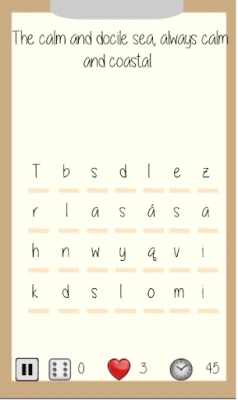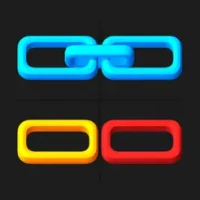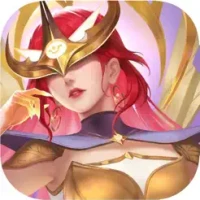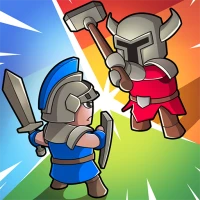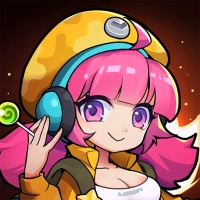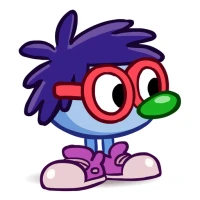
Latest Version
4
April 16, 2025
Al Apps
Games
Android
0
Free
com.AlApps.GreQuiz
Report a Problem
More About Greek Mythology Quiz
Discover Greek Mythology: Engaging Activities and Fun Facts
Greek mythology is a fascinating realm filled with gods, goddesses, heroes, and mythical creatures. This ancient narrative not only shapes our understanding of history but also influences modern culture, literature, and art. In this article, we will explore Greek mythology in an entertaining way, featuring interactive questions, true or false statements, and engaging activities that will make learning about these timeless tales enjoyable for everyone.
The Allure of Greek Mythology
Greek mythology serves as a window into the beliefs and values of ancient Greek civilization. The stories of deities like Zeus, Hera, and Poseidon, along with legendary heroes such as Hercules and Perseus, provide insight into human nature, morality, and the quest for knowledge. By understanding these myths, we can appreciate their impact on contemporary society.
Interactive Learning: Questions and Activities
To make learning about Greek mythology more engaging, consider incorporating interactive elements. Here are some fun activities and questions that can spark interest and encourage deeper exploration:
1. True or False: Mythology Edition
Test your knowledge with these true or false statements:
- True or False: Zeus is the king of the gods.
- True or False: Athena is the goddess of love and beauty.
- True or False: The Trojan War was fought between the Greeks and the Trojans.
- True or False: Medusa was known for her beautiful hair.
Answers: 1. True, 2. False (Athena is the goddess of wisdom), 3. True, 4. False (Medusa had snakes for hair).
2. Multiple Choice Questions
Challenge your friends or family with these multiple-choice questions:
- Who is the god of the sea?
- A) Hades
- B) Poseidon
- C) Apollo
- Which hero completed twelve labors?
- A) Theseus
- B) Hercules
- C) Perseus
- What is the name of the winged horse?
- A) Cerberus
- B) Pegasus
- C) Chimera
Answers: 1. B) Poseidon, 2. B) Hercules, 3. B) Pegasus.
Exploring Key Figures in Greek Mythology
Understanding the main characters in Greek mythology can enhance your appreciation of these stories. Here are some key figures to know:
Zeus: The King of the Gods
Zeus, the ruler of Mount Olympus, is known for his thunderbolt and his role as the god of the sky. He is often depicted as a powerful figure who upholds justice and order among both gods and mortals.
Hera: The Goddess of Marriage
Hera, the wife of Zeus, is the goddess of marriage and family. Despite her role as a protector of women, she is often portrayed as vengeful, especially towards Zeus's lovers and their offspring.
Athena: The Goddess of Wisdom
Athena, born from Zeus's forehead, represents wisdom, courage, and warfare. She is a symbol of strategic warfare and is often associated with the city of Athens, which is named in her honor.
Hades: The God of the Underworld
Hades rules the underworld, overseeing the realm of the dead. Often misunderstood, he is not the embodiment of evil but rather a necessary figure in the cycle of life and death.
Mythical Creatures and Their Significance
Greek mythology is rich with mythical creatures that symbolize various human traits and natural phenomena. Here are a few notable examples:
Medusa: The Gorgon
Medusa, one of the three Gorgons, is famous for her hair of snakes and her ability to turn anyone who gazes upon her into stone. Her story serves as a cautionary tale about beauty and power.
Minotaur: The Beast of Crete
The Minotaur, a creature with the body of a man and the head of a bull, represents the duality of human nature. The labyrinth built to contain him symbolizes the complexity of the human psyche.
Chimera: The Fire-Breathing Monster
The Chimera, a hybrid creature with parts of a lion, goat, and serpent, embodies chaos and unpredictability. Its defeat by the hero Bellerophon illustrates the triumph of order over chaos.
Conclusion: Embracing the Legacy of Greek Mythology
Greek mythology offers a treasure trove of stories that continue to resonate with us today. By engaging with these myths through interactive questions and activities, we can foster a deeper understanding and appreciation for the ancient world. Whether you are a student, a teacher, or simply a curious individual, exploring Greek mythology can be a fun and enlightening experience. Dive into these tales, and let the legends of gods and heroes inspire your imagination!
Rate the App
User Reviews
Popular Apps





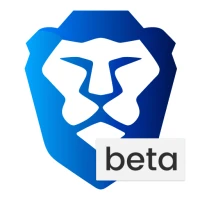




Editor's Choice










